From cleaning to cooking, sleeping to sports, essential oils have the power to improve whole-life wellness. The best way to access the benefits in those little amber bottles? Use essential oils correctly.
Even the most experienced oil aficionado can use the occasional EO refresher. And while this list of 10 essential oil mistakes isn’t carved in stone, consider it solid advice.
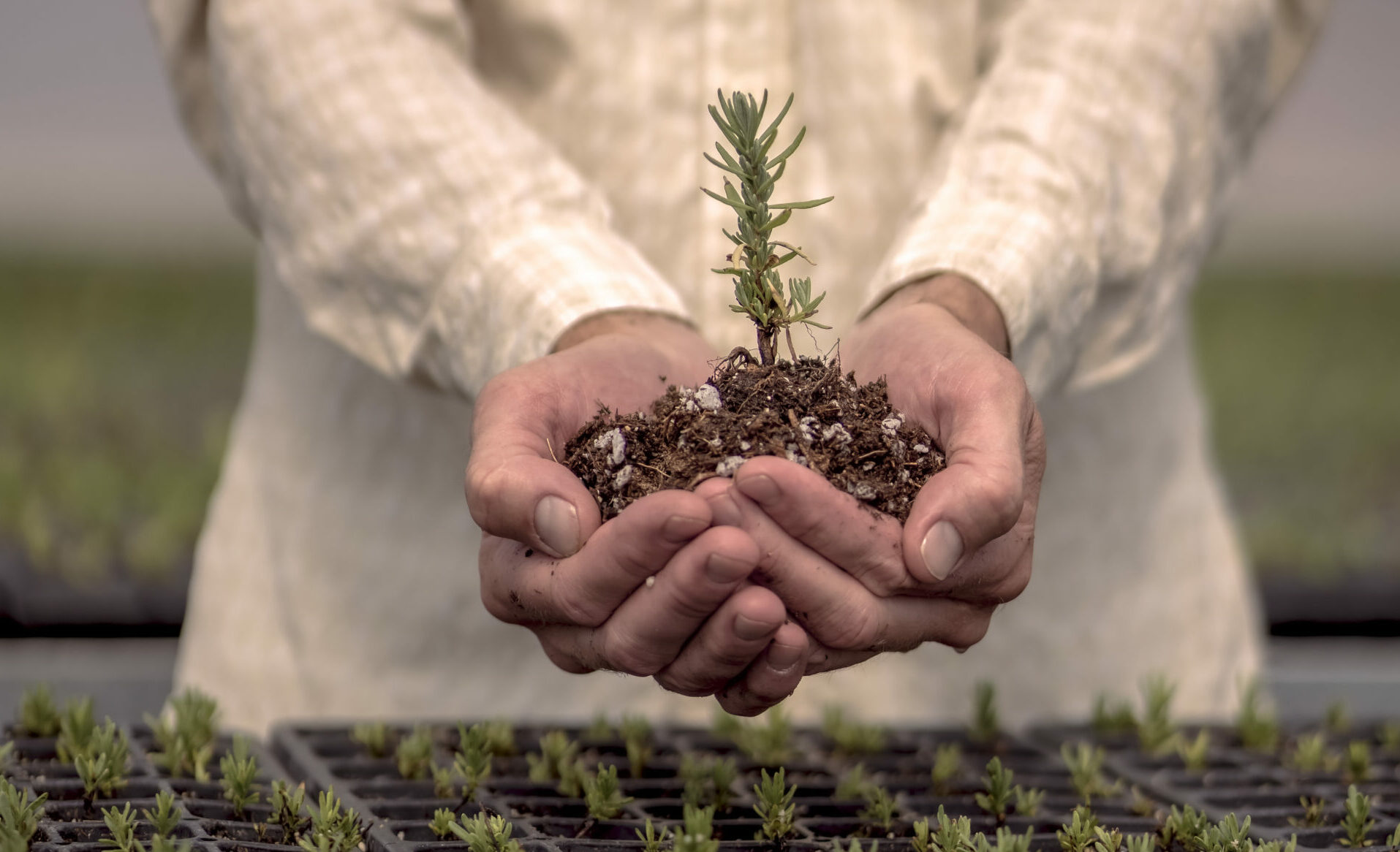
Mistake 1: Assuming all essential oils are created equal
Not all essential oils are created the same—quality and purity varies greatly among companies. If you want to ensure you’re getting the highest quality oils, go with the trusted industry leader. Yep, that’s us! Young Living’s Seed to Seal® quality commitment means we’re super strict on what ingredients we allow in our products and how we source the botanicals for our essential oils. We test the water, the soil, and the air on our farms to safeguard the process and protect our products. If it doesn’t meet our superior standard, we walk away.
If you’re as into knowing just what’s inside your bottle of Bergamot oil as we are, here are a few things you can do:
- Carefully read the ingredients on your essential oil bottle.
- Research how the company sources and produces their oils:
- Do they put synthetics, contaminants, or cheap fillers in their products?
- Does the company care about the communities, ecosystems, and agricultural practices related to their farms?
- Do they test their essential oils an average of 95 times before they hit the market? We do, thanks to our Seed to Seal quality commitment.
Mistake 2: Leaving essential oils out of your personal care routine
If you’re not using essential oils in your personal care routine, you’re missing out on some major perks. Plus, pampering yourself is easier than you think! Here are some ideas to get you started:
- Add some essential oils to your bath. Only a few drops of Lavender, Geranium, and Copaiba and bathtime quickly becomes a mini R&R retreat.
- Ramp up your relaxation with an oil-infused massage and enjoy a much-needed at-home spa night.
- Say yes to renewed, radiant skin when you include essential oils in your skin care routine. Tea Tree battles blemishes, Helichrysum hydrates parched skin, and Frankincense gives you that radiant glow. And that’s just a handful of the beauty-boosting oils on the list.
Mistake 3: Ingesting all essential oils
Sure, some berries are edible, but unless you picked them from the garden or grocery store, it’s best to proceed with caution before popping random berries in your mouth. The same holds true for essential oils.
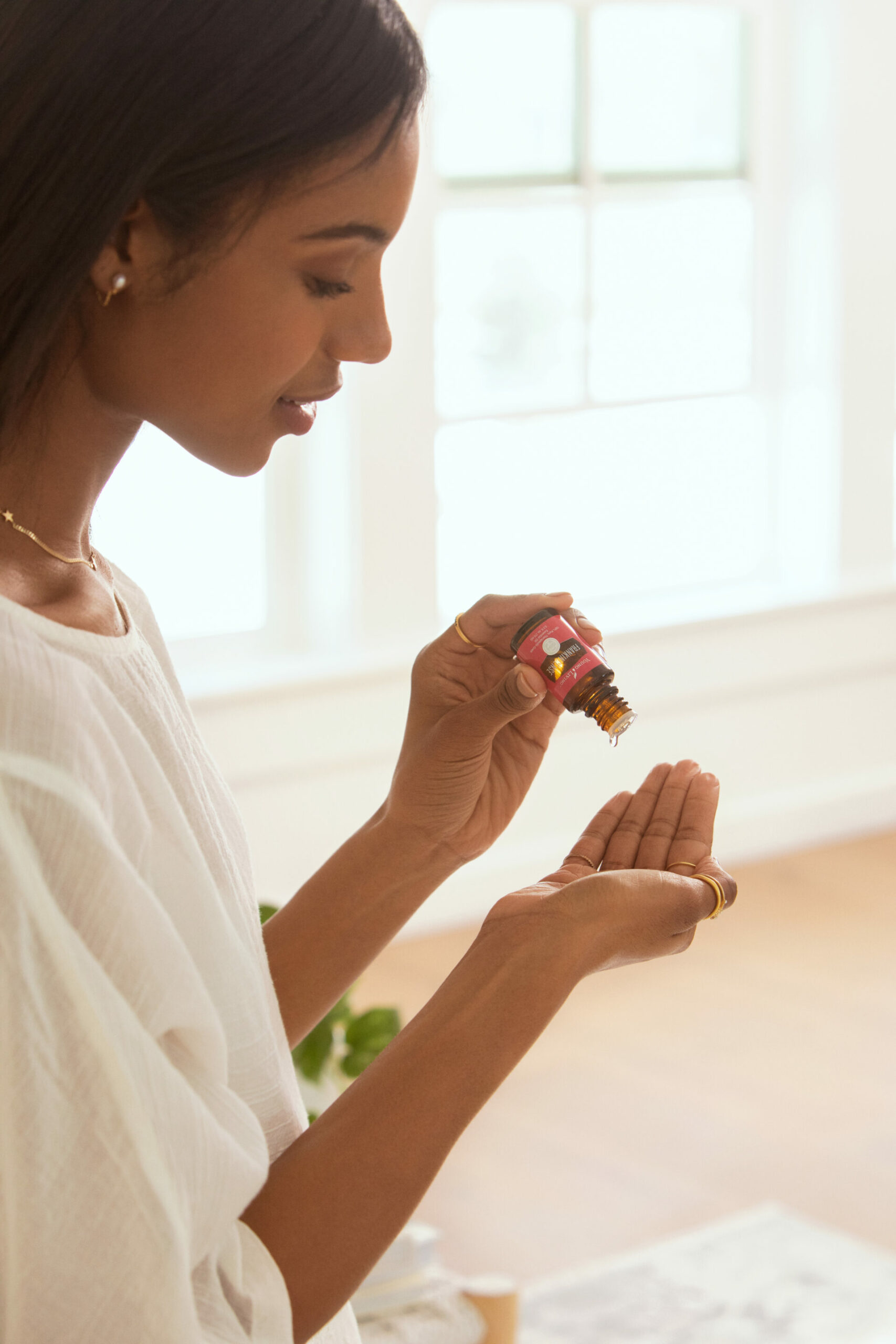
While you can flavor your favorite beverage with fresh lemon juice, you don’t always have fresh citrus on hand. Lucky for lemon—and lime and tangerine—lovers, our Vitality™ line of essential oils is an easy way to add a burst of flavor to your beverages. Use Black Pepper, Ginger, or Coriander Vitality oils to spice up your cooking or infuse your next batch of baked goods with a little Cinnamon Bark Vitality. You’re welcome!
- What’s the difference between Vitality and standard essential oils? Vitality oils and their classic counterparts contain the same oils. However, Vitality oils are labeled for dietary use, and the classics are labeled for topical and aromatic use. We totes believe sharing is caring—but only if done correctly. The directions on the different labels give some guidance on how to use essential oils, so you can safely share the EO love .
- Ready to experiment with essential oils in the kitchen? Whip up some homemade blueberry-lavender ice cream or our no-bake energy balls!
- Hesitant to try a new recipe? Add some pizazz to store-bought spaghetti sauce by dipping a toothpick in Oregano or Basil Vitality then swirling it through the sauce. Prego!
- Not a fan of hydrating with plain ol’ H2O? Try a few drops of Grapefruit Vitality in your filtered water for a refreshing midday pick-me-up.
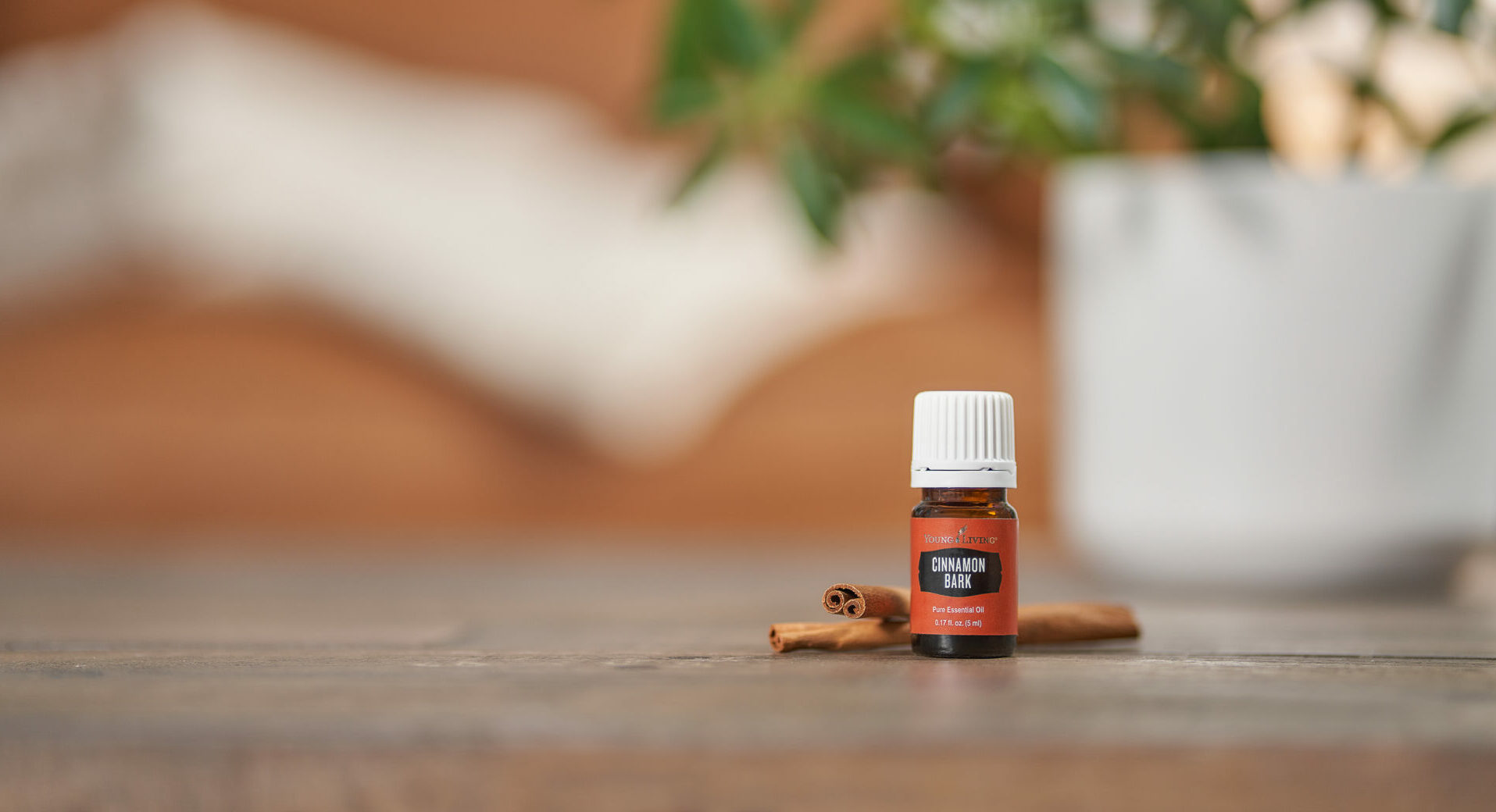
Mistake 4: Forgetting some essential oils are hot
While you can apply many essential oils directly to the skin without dilution, some are considered “hot” oils. For example, Peppermint feels great as part of a post-workout massage, but without proper dilution, the sensation can be very intense. The same holds true of other “hot” essential oils. Here are a few things to remember when tackling these trickier oils:
- We refer to essential oils as hot oils because they cause a warming sensation when applied topically.
- Peppermint is one example of a hot oil; Cinnamon Bark, Black Pepper, and Oregano are others.
- You can dilute hot oils with a carrier oil like our V-6™ Enhanced Vegetable Oil Complex.
- Before using an oil topically, do a spot test on your forearm and watch for a reaction.
- If you’re unsure if an essential oil is a hot oil, check the label to find out if it requires dilution.
- Slow and steady wins the race! Start with just a drop or two of essential oil and build from there.
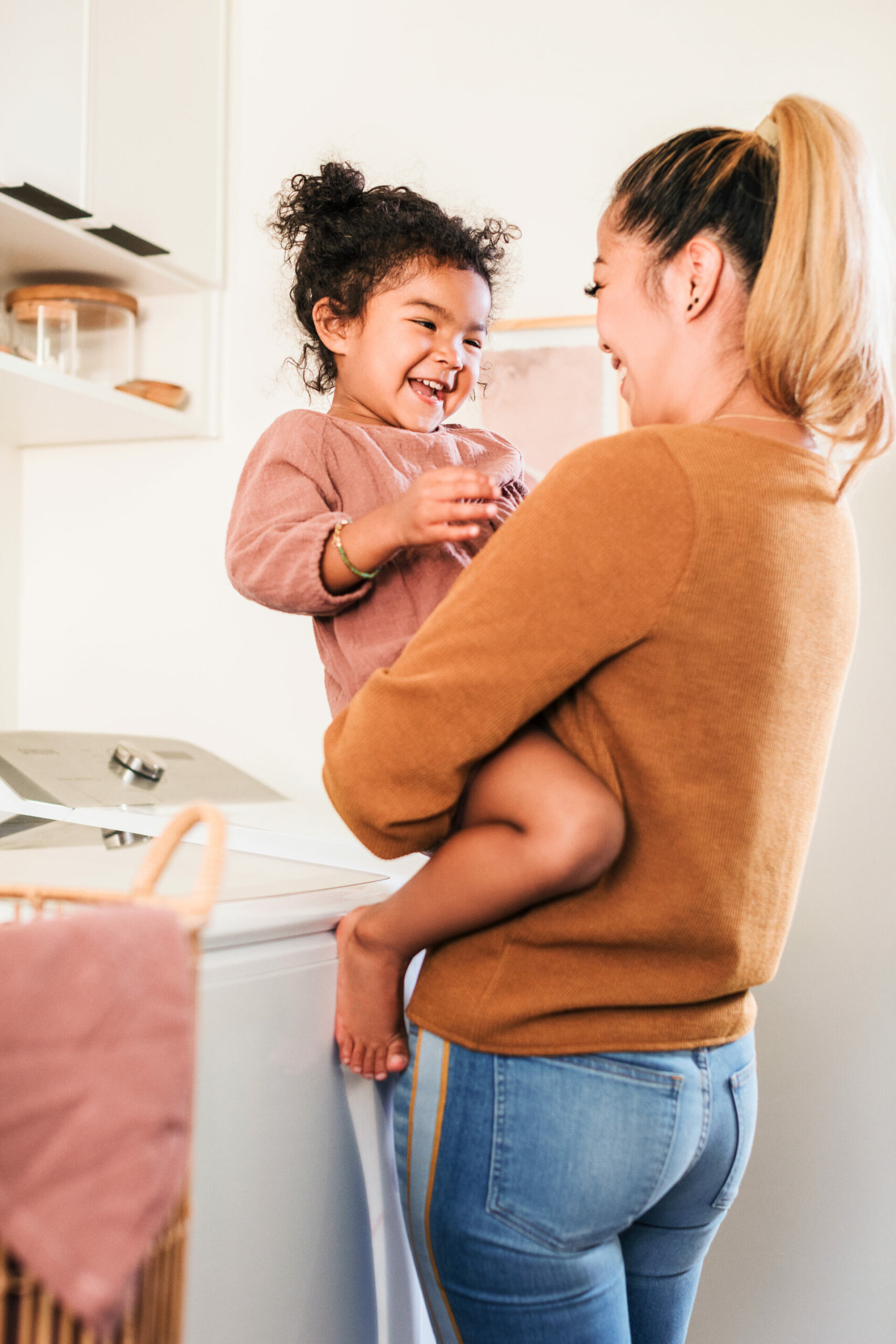
Mistake 5: Ignoring the staining power of some essential oils
Essential oils are fantastically fragrant, so it’s a given we’d want to add them to our lotion, laundry, and linen sprays. Who doesn’t love surrounding themselves with clean, cozy, comforting smells?
Unfortunately, some of those clean, cozy smells come from some very colorful oils that can stain skin and clothes. Good news—we’ve got your back! We want you to look as great as your essential oils smell, and a Blue Tansy-hued face paired with a Jasmine-spotted jumper is not going to cut it. Check out this post to learn which essential oils stain.
Want to sidestep unsightly stains on linens and laundry? Avoid doing the following when dealing with darker oils:
- Applying directly to the skin and getting dressed before the oil absorbs
- Adding to your laundry
- Spilling on clothes or other fabrics
YL tip: Although some essential oils stain, others help remove everyday stains. Check out our DIY stain remover stick powered by pure essential oils!
Mistake 6: Soaking up the sun’s rays before checking if an oil causes photosensitivity
When we say “causes photosensitivity,” we’re not saying you’ll suddenly dislike selfies. We’re talking about how some essential oils, especially citrus, contain compounds known as furanocoumarins—say that 10 times fast—that greatly increase UV sensitivity. And while most photosensitizing oils are citrus, others can contain compounds or mixes of compounds that have the same effect as furanocoumarins. Those aren’t sun safe either.
Venturing outside? Always check your oil bottle’s label before application. If it has a photosensitivity warning, it’s a no before you go. Here are some easy tips to help reduce the risk of reactions:
- Use photosensitive oils as part of your nightly routine.
- Cover the application area with your clothing or a wide-brimmed hat.
- Follow all label instructions.
- Seek medical advice immediately if the skin is painful or the reaction covers a substantial portion of the body.
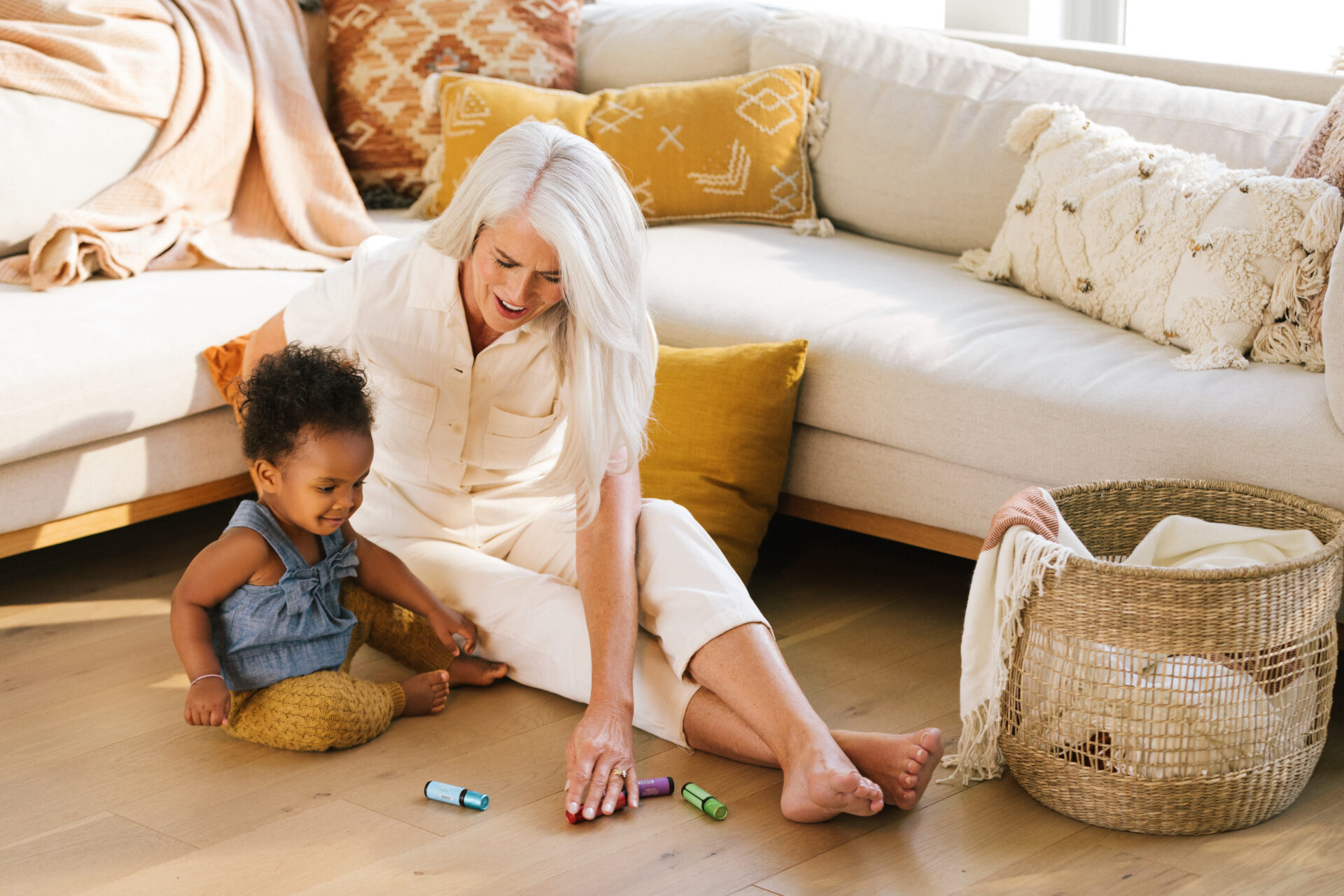
Mistake 7: Keeping kids from the essential oil awesomeness
We love our little humans! They might be sticky, messy, and cranky, but the moment they reach for us, we become putty in their tiny hands.
We want our children to live happy, healthy lives. Essential oils and oil-infused products can play a vital role in creating an environment where children feel safe and secure. Whether you’re quieting your little one at bedtime with the soothing scent of Peace & Calming® or soothing your toddler’s sun-kissed skin with LavaDerm™ After-Sun Spray, oils are essential to a family’s whole-life wellness.
When it comes to kids, it’s important to keep a few things in mind:
- You can use products from our Seedlings® line with a clear conscience, knowing that they’re approved for use with babies and young children.
- Diluting for your mini-me is very different than for yourself. You’ll find our guide for diluting essential oils for kids and babies a helpful tool.
- Our Feather the Owl Diffuser can set the stage for a successful night’s sleep with features that include a humidifier, aroma diffuser, night-light, and white-noise machine—owl in one!
- Parenting can be tough, but with a little help from YL’s KidScents® line, you can do everything from tame tangles to protect your kids’ pearly whites.
Mistake 8 : Clinging to candles or air fresheners
Sure, things can get pretty lit with candles, but diffusers are hands down the best air fresheners. You get bright, fresh scents without harmful or synthetic compounds. Save those fake fruits and flowers for display only. Ready to make the switch? Try these ideas:
- Brush off the bad feels caused by your commute with a refreshing diffuser blend of 1-2 drops each of Citrus Fresh™ and Stress Away™. Your coworkers and your Car Vent Diffuser will thank you.
- Create a unique diffuser blend that reflects your current mood. Not sure where to start? Check out our list of DIY essential oil diffuser blends. Good luck picking which one to try first!
- Find an ideal spot for your diffuser. If you have more than one ideal spot, we won’t judge you for adding a second or third diffuser. Not sure where to put your diffuser? We went ahead and figured that out for you.
- Believe in the power of aromatherapy. Whether you use essential oils during bedtime, bathtime, or any time you need a little TLC, their power-packed aromas are all about promoting overall well-being.

Mistake 9: Using essential oils improperly around pets
Our furry friends are like family, so it’s natural to want to share our essential oil obsession with them. But just like you have different oil rules depending on your children’s ages, there are different rules for using essential oils around pets. Here are some basic guidelines:
- Animals are generally more sensitive than humans to essential oils. It’s best to heavily dilute essential oils and use them in moderation.
- Every animal is different. Carefully observe how your animal responds to essential oils and use common sense as you try different oils.
- Our Animal Scents® line, which includes Infect Away™, Mendwell™, ParaGize™, PuriClean™, and T-Away™, is totally pre-approved for your pet. Even better, a portion of all proceeds from Animal Scents products supports Vital Ground, a nonprofit organization dedicated to protecting the habitat of grizzly bears and other wide-roaming wildlife. Double win!
- Accidents needn’t be a source of frustration between you and your furry friend. A spritz or two of our DIY pet stain remover will restore your carpet and your quality cuddling time.
- Sometimes hikes and dog park play dates can leave your pet less perky. When your pet’s paws need a little pampering, try this DIY paw balm.
Have a pet that peeps rather than purrs? Check out this helpful infographic. For more in-depth information, please visit our blog post.
Remember, animals can’t tell us if something is working. As a pet owner, please exercise caution and always defer to your veterinarian.*
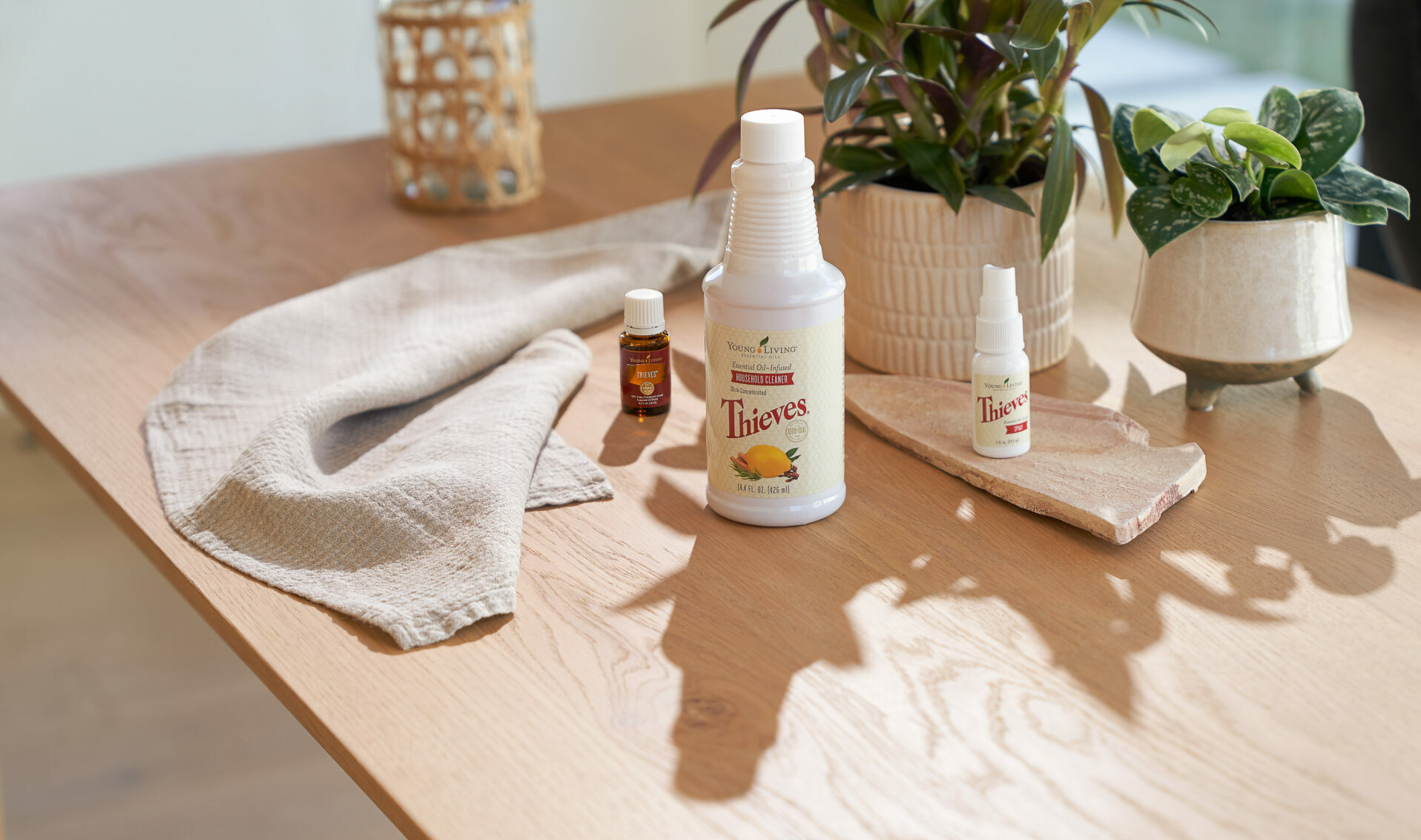
Mistake 10: Holding on to toxic cleaning products
It’s time to say goodbye to harsh chemical-based cleaning products and hello to a toxin-free home! Tidy up—naturally—with a few of these tips and tricks:
- Make the switch to a chemical-free clean with these eight plant-based cleaning products.
- Infuse your favorite natural cleaners with essential oils like Eucalyptus Globulus, Lemon, Purification®, and Tea Tree. Sparkling counters never smelled so good!
- Think Thieves® Household Cleaner is your basic all-purpose cleaner? Think again! You can use it to make 29 DIY cleaners including a trash can scrub, furniture spray, and whiteboard eraser.
- Save some elbow grease with our DIY Thieves cleaning fizzies. Place a fizzy in your toilet bowl or tight-necked bottle to help clean and deodorize. Nothing like ditching the dirty work!
Still have a few questions about how to use essential oils? We have answers! We can also tell you everything you ever wanted to know about aromatherapy. Hint: essential oils are pros at promoting overall well-being.


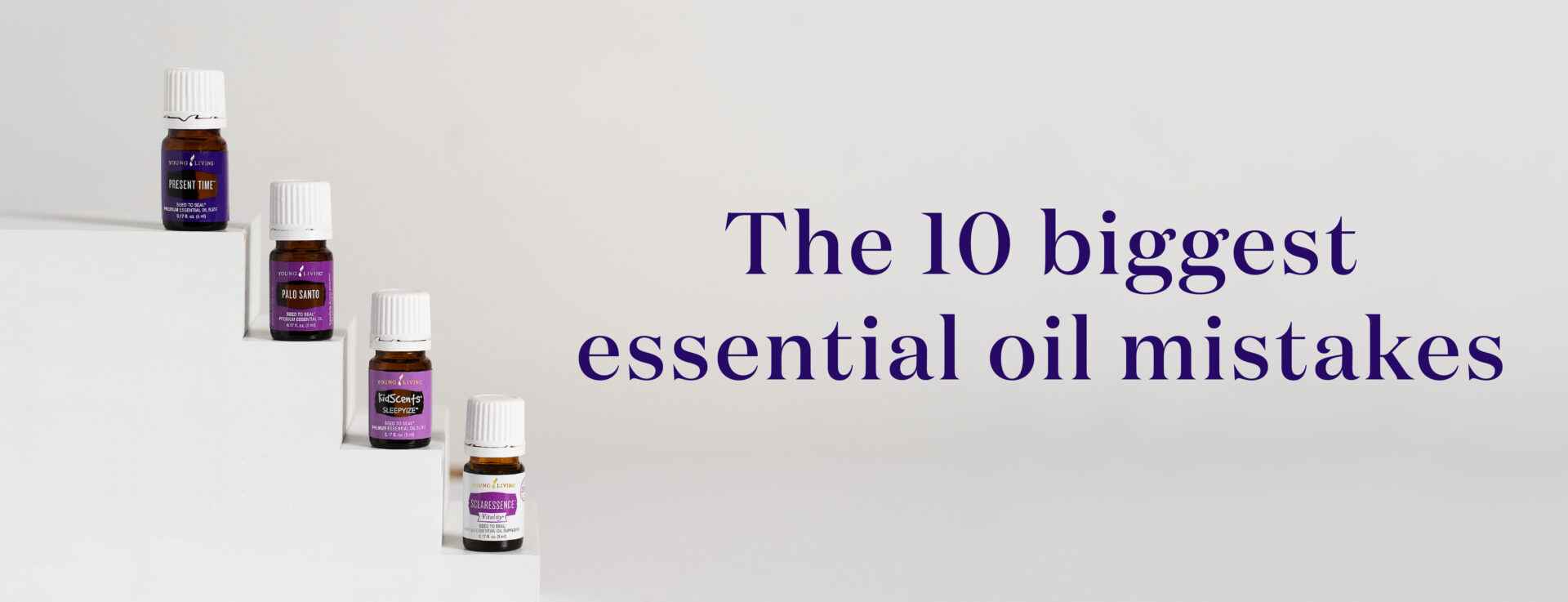
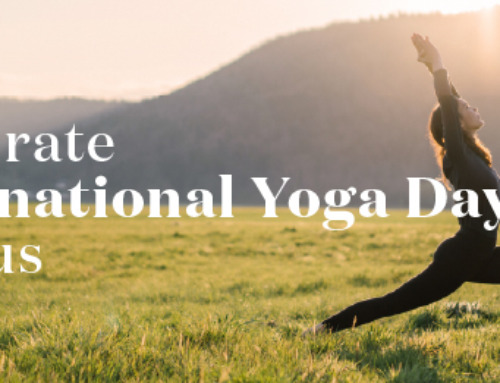
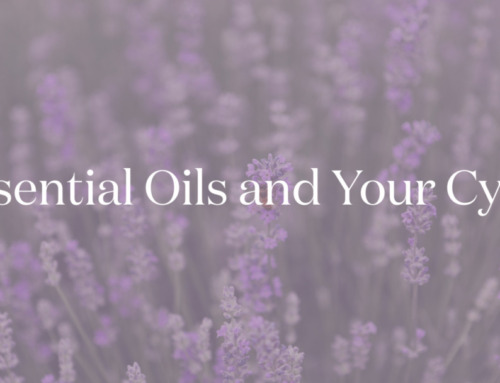
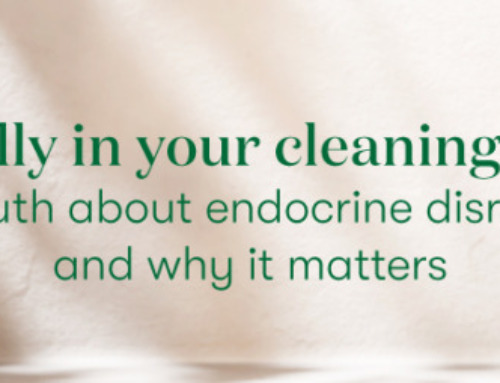
Leave A Comment